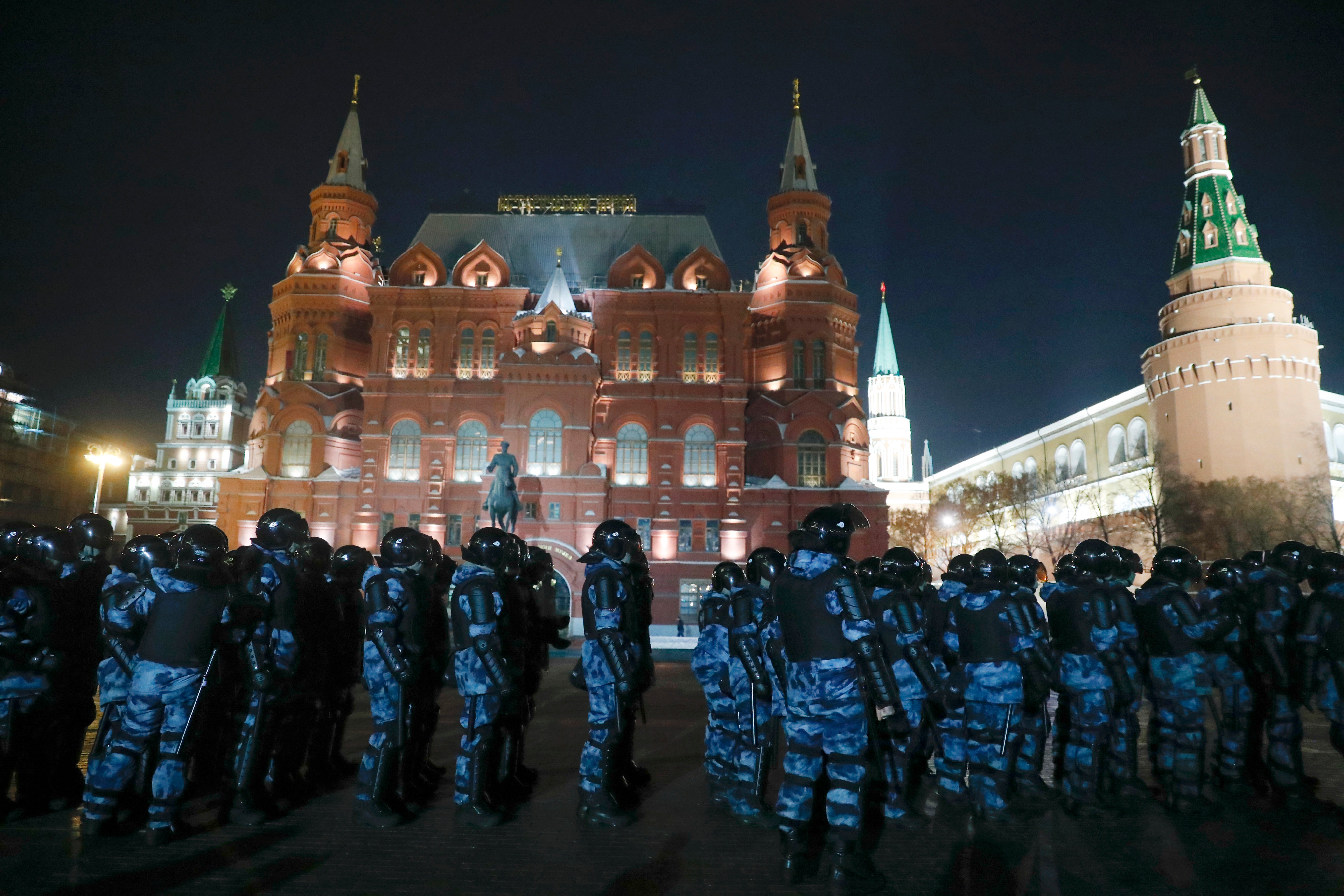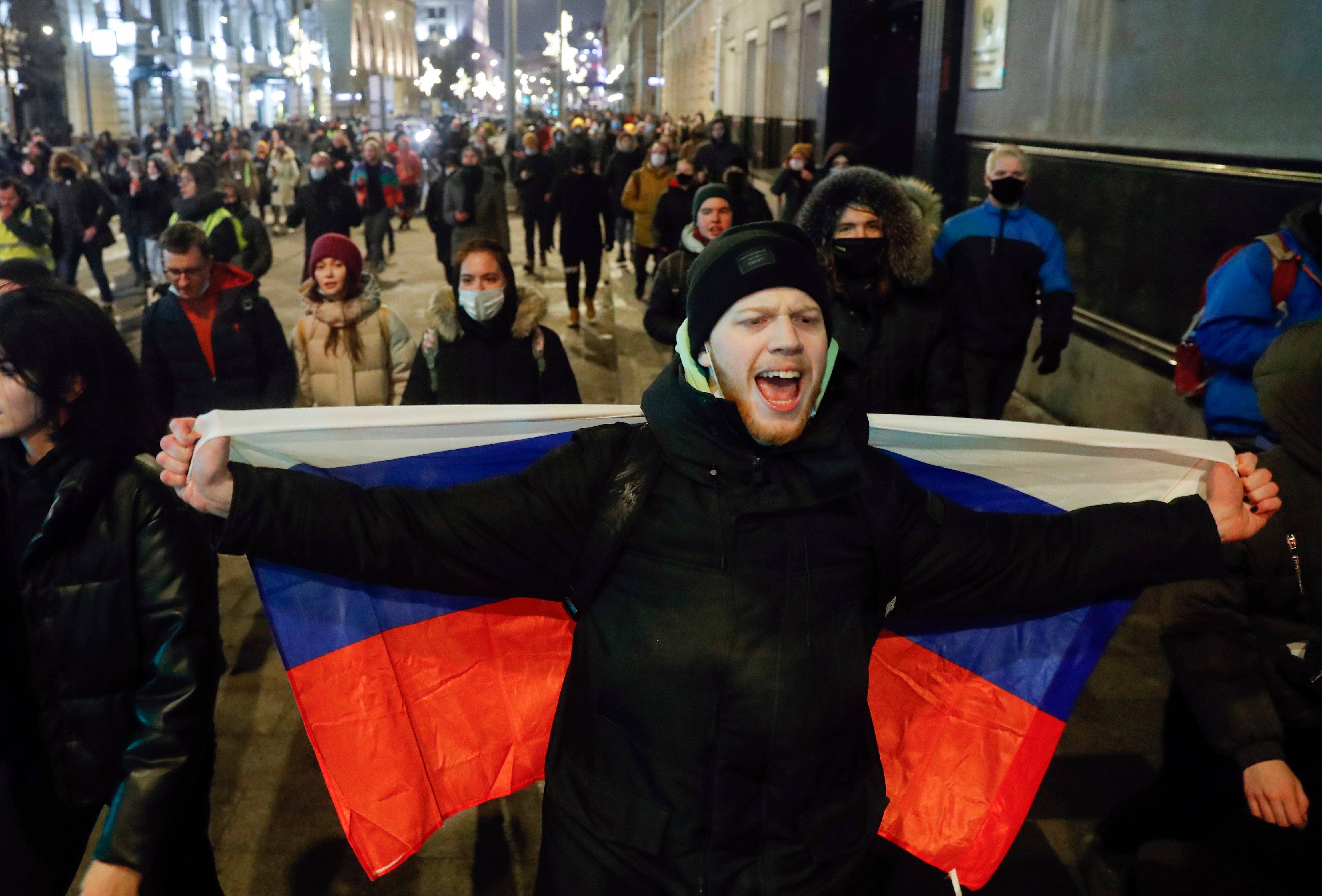Press in line of fire as Russian authorities tighten grip post-Navalny
Court jails media editor for 25 days as Kremlin intensifies crackdown

Your support helps us to tell the story
From reproductive rights to climate change to Big Tech, The Independent is on the ground when the story is developing. Whether it's investigating the financials of Elon Musk's pro-Trump PAC or producing our latest documentary, 'The A Word', which shines a light on the American women fighting for reproductive rights, we know how important it is to parse out the facts from the messaging.
At such a critical moment in US history, we need reporters on the ground. Your donation allows us to keep sending journalists to speak to both sides of the story.
The Independent is trusted by Americans across the entire political spectrum. And unlike many other quality news outlets, we choose not to lock Americans out of our reporting and analysis with paywalls. We believe quality journalism should be available to everyone, paid for by those who can afford it.
Your support makes all the difference.Journalist Fedor Khudokormov was filming the protest postscript to Tuesday’s jailing of Kremlin critic Alexei Navalny when a riot-police officer turned away from beating a young demonstrator to push the reporter away.
Mr Khudokormov, who was wearing a clearly identifiable yellow press jacket, shouted that he was press and showed his credentials. But the introduction had zero effect as the officer instead leaped forwards — and with one, then two deliberate strikes of the truncheon to Khudokormov’s head, sent him falling to the icy ground.
The 19-year-old reporter was eventually transported to the city’s main emergency hospital, where he spent several hours nauseous and vomiting. Discharged with a diagnosis of concussion and head injury, he intends to press charges against the police. Given Russia’s on-demand legal system – obvious from Tuesday’s sentencing of Mr Navalny – he is not confident of success.
“I don’t want to entertain any hope,” he told The Independent. “A woman was kicked in the stomach in St Petersburg ten days ago, and still no criminal case has been opened.”
Mr Khudokormov’s tale was one of but many grim stories from a night of shocking ultraviolence in Moscow, where riot police scuttled around the city centre’s fancy streets in search of panicked, and mostly young, prey, and where officers beat youngsters even as they had their hands in the air and chanted that they were without weapons.
But the attack on a clearly identified reporter suggested authorities appeared to have changed the rules of engagement — and were increasingly viewing the press as fair targets in their clampdown.
The authorities are pressing not only in the streets, but in the justice system too.
On Wednesday, a Moscow court sensationally jailed Sergei Smirnov, the widely respected editor of Mediazona, a muckraking resource that specialises in the repressive elements of Russia's justice system. The troublesome Mr Smirnov was given a 25-day administrative sentence for retweeting a joke that contained the date of a protest in support of Mr Navalny.
Mr Smirnov’s sentence followed a long campaign of harassment – including raids at his home, and at the homes of his mother and of his colleagues.
Almost immediately afterwards, news feeds reported the jailing of another liberal journalist, Nikita Girin, who had been detained at an unsanctioned rally. He was handed a 14-day sentence in a hearing that lasted 10 minutes.
Wednesday also saw an interest in new targets too. Earlier in the morning, Roman Badanin, the influential editor of Proekt, another investigative outlet, reported that an officer had turned up at his former address.

It was not clear what the police officer wanted, but it is likely he believed the journalist to still be living at the address. Delivering official warnings is the usual first step before formal court processes begin.
Even with jails filling up in Russia’s main cities, the Kremlin has shown no intention of letting up on an increasingly hardline policy towards its critics.
In comments to journalists on Wednesday morning, spokesperson Dmitry Peskov defended police actions – even in the face of clear evidence of unprovoked attacks.
The “harsh police actions” were justified because the protests were unauthorised, he said.
Join our commenting forum
Join thought-provoking conversations, follow other Independent readers and see their replies
Comments